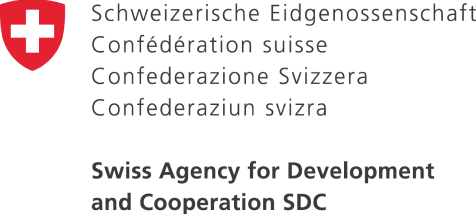Making it Easier, Safer and Less Expensive for Migrants to Access Financial Services
Modern finance has emphasized the importance of the citizen as a customer, saver, investor, and political actor. Yet, migrants have often been conceived of as being outside of the functions of the financial system, served by and subject to it rather than being active participants. We work to address the income volatility, uncertainty, and financial insecurity of migrants. Financially resilient migrants allow for financially resilient economies, locally and globally. When migrants can meet their financial needs – and aspirations – host and home economies can truly thrive.

The Challenge
Reimagining an Experience as Universal as Migration Itself: Remittances
Every year, around 281 million migrants around the globe send almost $1 trillion as remittances to families in low- and middle-income countries. This money often serves as the primary income source for the migrants’ families and is used for varied purposes, including health, nutrition, household consumption, emergencies, and as an investment for future needs, playing a vital role in financial development. Even migrants who lack every other conceivable form of financial service—who have no current or savings account or access to credit or insurance—will, no matter what, find a way to send money to the family.
Despite the importance of remittances, they have remained stuck in a couple of inefficient models. Most formal remittances are over-the-counter, cash-in/cash-out transactions. The migrant earns wages or a salary in the local currency of their host country. They take some of this cash to a money transfer outlet and pay a hefty fee to send it to the family back home. The family gets word that their money has been sent, and someone goes to the closest money transfer outlet and receives the remittance as cash in the local currency. This is all an expensive, inconvenient, and inefficient hassle. Neither does it facilitate access to affordable finance in host countries nor in the home countries.
280+ million
international migrants in the world
(IOM 2022)
US$ 794 billion
in international remittances are sent by migrants to their families annually
(KNOMAD / World Bank 2022)
Our Solution
Why We Empower Digitization

We work across the financial ecosystem to craft policies and products so that migrant money moves safely and efficiently.
As new technologies highlight the importance of individuals on their local economy, digitization enables migrants to play larger and more diverse roles in their finances. However, risk-based laws and regulations must empower migrants and provide them with the tools they need to maximize their abilities.
Currently, countries, ministries, and regulators disagree on how remittances should be handled and processed. Payment and settlement systems vary widely, and the requirements for anyone intending to start their own money transfer business are far from consistent. All these complexities could be ironed out via multilateral cooperation and by creating a common regulatory framework.
Our team works with a wide range of players to ensure that migrants and their families have access to the affordable remittance services they require, crafting the right policies to make cross-border transactions smoother and investing in initiatives that extend financial inclusion to women and migrant customers.
Our Values
Centering Migrants and Promoting Gender Equality
Our solutions always prioritizes migrants’ needs. An empowered migrant trusts the remittance and financial service providers she frequently uses; is treated with respect; is confident in transacting with them; feels safe, and feels free to exercise her voice, including to complain and seek redress. As a result, she makes informed choices, among the range of financial options available, and uses services she values to be able to have greater control of her financial life.
To drive increased and sustained adoption of gender-responsive remittances and financial services, we build the capacities of regulators and remittance service providers to invest in migrant-centric policies and financial product design, enhanced financial literacy, redress mechanisms and ways of listening to what migrant customers, particularly women, want and need.
Women face unique obstacles in accessing financial services, some resulting from discriminatory financial service practices and gender norms, and others from regulations and policies actually meant to promote financial inclusion. Evidence shows that remittance patterns are gendered – in the channels, amounts and frequencies of remittances, as well as how and by whom the money is used. We work closely with the public and private sectors to align commercial incentives and public policy objectives towards building resilience for all migrants equally, rather than perpetuating existing biases that may favor the needs and experiences of one gender at the expense of another. By mainstreaming a gender lens into how we work, we ensure that our activities and outcomes reflect the experiences of – and are beneficial for – all migrants, regardless of their gender.
Our Donors
Uniting Partners to Serve Migrants


With the support of the Swiss Agency for Development and Cooperation (SDC) and the Swedish International Development Cooperation Agency (Sida), our effort has engaged partners in the public and private sectors at the global level (multilateral, standards-setting bodies and global money transfer operators), regional level (regional economic communities and monetary unions) and country level (line ministries, regulators and financial institutions) to address constraints at the ecosystem, institution, and product levels. This aims to transform the policy, regulatory and innovation landscapes and thus start meeting the needs of migrants and their families by overcoming all the above obstacles.